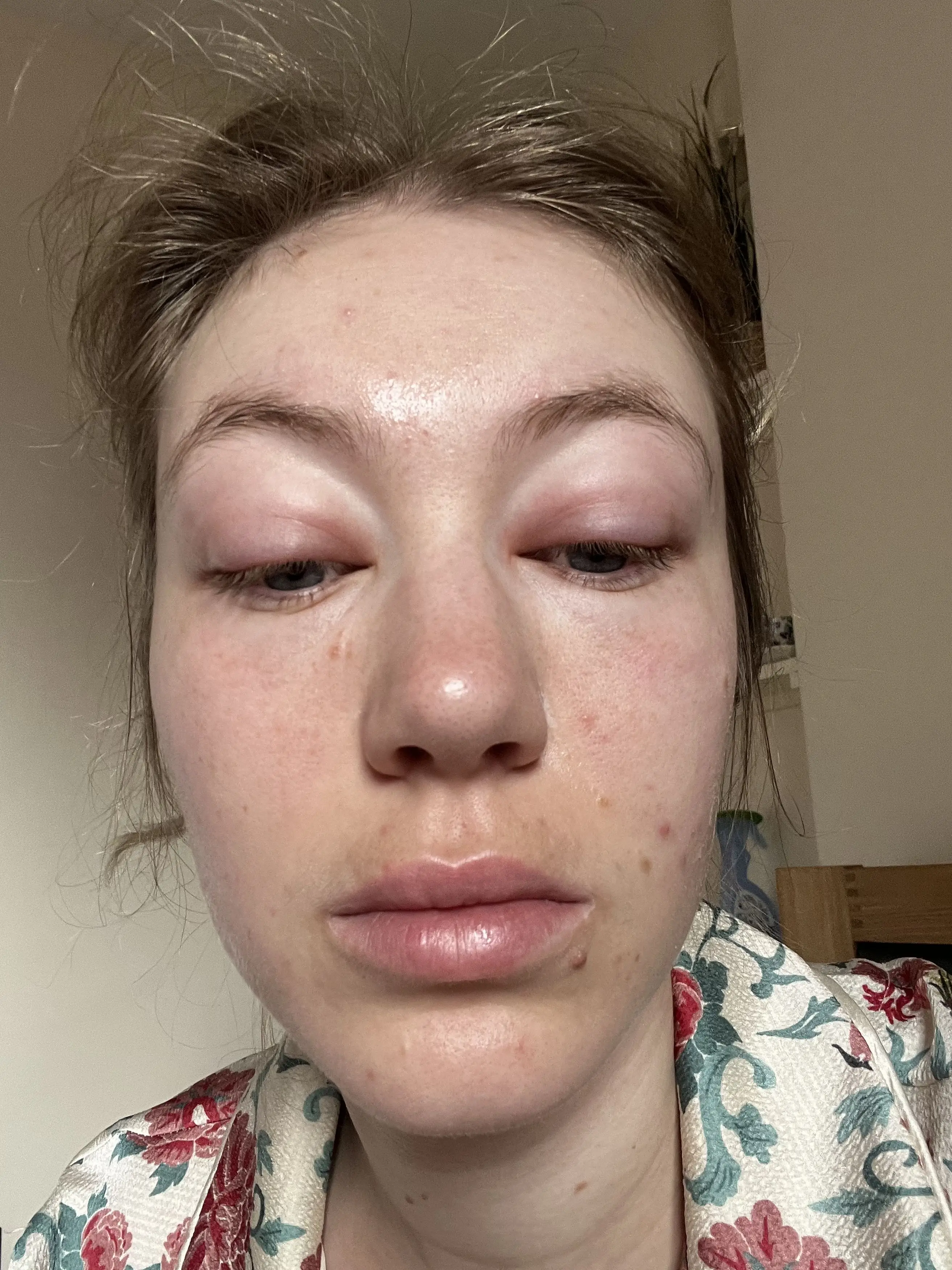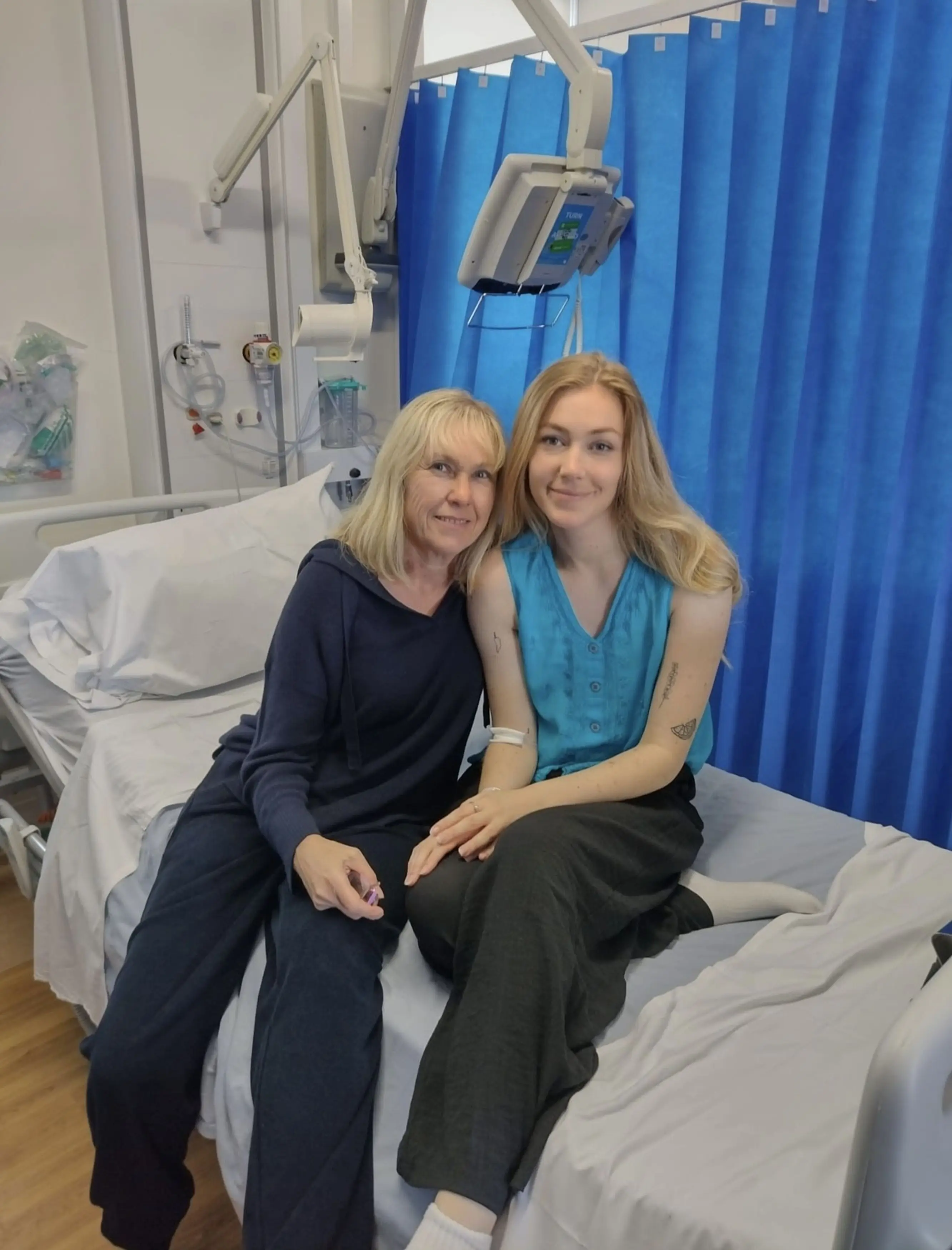
A woman who put her symptoms down to hay fever, hangovers and being tired from work received a life-changing diagnosis.
Ellen Swarbrick, from Cheshire, ended up needing a kidney transplant, with the donation saving her life.
In the spring of 2022, she first noticed that she was waking up with a swollen face, but understandably put it down to hay fever.
But by September 2023, when she had moved down to London from Wilmslow, Cheshire, to start a solicitor training course, she had to start taking two antihistamines daily to try and reduce it.
Advert
“I was working really hard, feeling more and more tired,” the 28-year-old explained.
"The puffiness had continued and was probably getting a lot worse. Because it was summer at the time, I thought it was hay fever.”

Ellen says it would go down by the evening, so she assumed the antihistamines were doing the trick.
But she was also struggling to get out of bed when her alarm would go off, and just put this down to being ‘lazy’ - assuming she was tired from her new job.
"I was working quite hard. I remember feeling like I was finding it a lot more difficult than everyone else, and I didn't really understand why,” she added, realising that the level of tiredness she was experiencing was ‘not normal’.
Ellen was also suffering from ‘really bad’ hangovers, leaving her ‘throwing up’ the day after just a few glasses of wine.
Her symptoms continued, and on a work trip in July 2024, she found her ankles had swollen up, but brushed this off as down to the heat.

But when she came back to the office, she began experiencing flu-like symptoms and blurred vision and eventually called 111.
Ellen was sent to the eye department at hospital and doctors found high blood pressure was the cause.
After a short stay, she was moved to a renal ward and a biopsy led to her being diagnosed with stage four chronic kidney disease. It was said the cause was an autoimmune condition called IgA nephropathy.
Just after Christmas 2024, a routine blood test showed it had progressed to stage five, and Ellen needed a transplant.
Luckily, her mum, Kathryn, was an 80 percent match and was able to give her a kidney in May this year.

"It's so emotional. Every time I see my mum or speak to her I just start crying,” Ellen said.
"She's completely changed my life. I just have a lot more hope for the future. I didn't want to ask [people to donate] and I didn't want anyone to feel pressured in any way.
"My mum was so determined. She knew it was going to be her.”
Ellen will need another transplant during her lifetime, but her most recent test showed her kidney function was in the normal range again.
She wants to raise awareness of the signs and symptoms of kidney disease as she ‘didn’t consider’ she’d have anything like it.
“I was so confused how I could have this seriously life-threatening illness and not know about it,” she explained.
"It was just bonkers to me and it took me ages to get my head around.”
And now she says her quality of life is ‘immeasurably better’.

Symptoms of Chronic Kidney Disease (CKD)
The NHS explains that kidney disease doesn’t tend to cause symptoms when it’s at an early stage, but a number of symptoms can develop if it’s not found early or it gets worse despite treatment.
Symptoms can include:
· weight loss and poor appetite
· swollen ankles, feet or hands – as a result of water retention (oedema)
· shortness of breath
· tiredness
· blood in your pee (urine)
· an increased need to pee – particularly at night
· difficulty sleeping (insomnia)
· itchy skin
· muscle cramps
· feeling sick
· headaches
· erectile dysfunction in men
Topics: Health